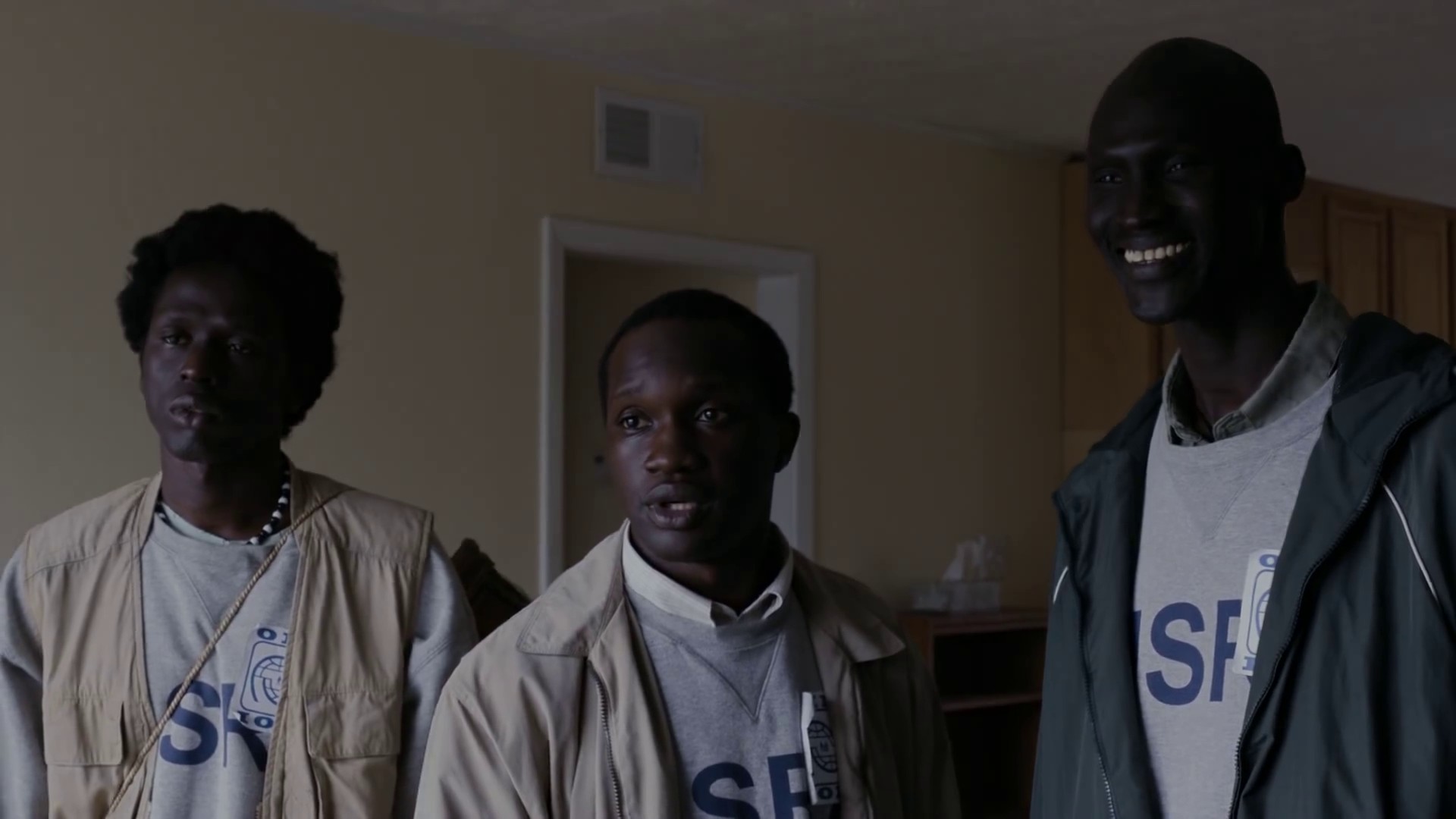By Mark Saldana
Rating: 3 (Out of 4 Stars)
Many things have been said about the “American Dream” and the concept has been the subject of both cliche Hollywood movies and intelligent satire. Like most countries, the U.S. has its problems, but it can serve as a safe haven for refugees from other more troubled places. The Good Lie tells a slightly cliche, but nevertheless heartfelt, story of Sudanese refugees adjusting to their new lives in America. The film does cover familiar territory and contains a lot of the same elements as other films, but still tells a relevant and compelling story. The screenplay by Margaret Nagle does lack some character development, but one would have to be a totally cold-hearted person to not empathize with the Sudanese characters and be moved by this story of love and sacrifice.
As children, Mamere (Arnold Oceng), Jeremiah (Ger Duany), Paul (Emmanuel Jal) and Abital (Kuoth Wiel) have suffered many losses and witnessed violent atrocities in their home of Sudan. After growing up in a refugee camp, the family is given an opportunity to travel to the United States and pursue better lives. The family’s close bond is first put to the test when the program forces Abital to live in a different state. Desperate to reunite with their sister, the Sudanese gentleman seek help from their job placement counselor, a bold and no-nonsense lady named Carrie Davis (Reece Witherspoon). The culture clashes and other adjustments that “Lost Boys” must make to survive and thrive in America also put a strain on their close relationship. Still, Mamere, the head of the family, remains undaunted in pursuing his goal of having his family complete again.
Directed by Philippe Falardeau, The Good Lie does mostly play out like the typical, “Caucasian lady helps African people in need.” movie. Some of the scenarios are a bit formulaic, but thankfully Nagle does manage to add some lovely and wonderful surprises to the story. Though the film is meant to focus on the story of the refugees, the American characters helping them lack some much needed development. These peripheral characters only serve to help the Sudanese family, but don’t really have much of a stake in the story, nor is there any realistic explanation for their involvement. Granted, the Carrie Davis character gets more screen time and development, but she never feels complete or fully realized. She merely serves as another culture clash device who also just happens to help the refugees the most.
Despite these lazy storytelling problems, there is enough compelling material that feels true and genuine. These moments come mostly from Falardeau and Nagle’s depiction of the Mamere, Jeremiah, Paul and Abital’s experiences in Sudan and their fight for survival. These nail-biting and harrowing moments work tremendously well and help develop these characters more fully. To counter the more perilous scenes, the culture clash comedy mostly works and often had me smiling and laughing.
I was also particularly impressed with the natural and genuine performances by the African actors, most of whom actually hail from Sudan. Witherspoon also performs well in spite of the limited development her character gets. She brings a real fire and attitude to her brassy character. The film also stars Corey Stoll, Sarah Baker and Lindsey Garrett who all perform adequately, but are given little to do anyway. I also wish to acknowledge the child actors who portray the refugees during their pre-teen years. Peterdeng Mongok, Okwar Jale, Thon Kueth, Deng Ajuet, Keji Jale, and David Madingi all offer lovely performances and show much promise at such young ages.
I feel I should issue my readers a warning if they had planned to take their children to this movie. Though the film does have some wonderful themes and messages about family, it also has some violent and disturbing scenes which may be too strong for young children. The movie also contains some strong language. The content is probably more appropriate for young teens and older. As for my recommendations, I found the story heartfelt and compelling enough that I’d recommend watching it. It would make for a satisfying weekend afternoon at the cinema.
